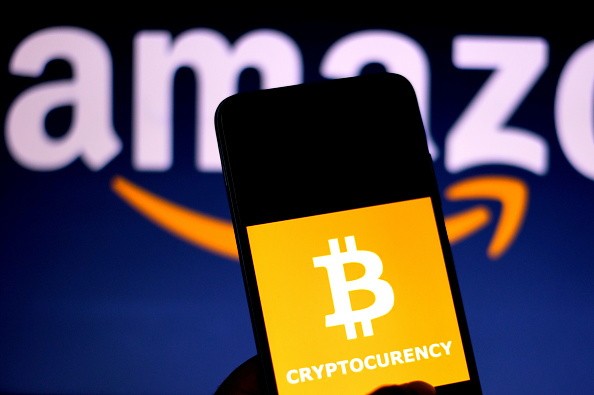
Blockchain-based financing has no sooner become a dominant force in the technology sphere. From crypto-based gaming considerations to NFT art museums, more and more the realm under blockchain becomes ever-saturated with broadening forms of expansion.
Still, while catapulting technology into the stratosphere via various degrees of enhancements and rewarding its ground floor user base with many millions (some potentially billions), crypto has still remained a frequented catalyst for the get-rich-quick scam artist.
Herein is where Akamai, a securities tool and metadata site, steps in to showcase how Amazon has slowly become the mass target for a cryptocurrency scam that pits consumers with the swift bucks scheme. Akamai's Or Katz recently published research that highlights how easy it is for scammers to steal from unsuspecting victims when utilizing crypto-phishing.
These social media crypto-phishing campaigns lead consumers to a fake news site reporting on a new supposed "Amazon Token," a veritable lie as Amazon itself came out back in July of last year to outright deny said claims of ever using crypto payment plans or making its own coin-based blockchain system. Victims, unfortunately, are still easily fooled.
To avoid such scams, it's best not to click on any random links provided to you by random individuals across all of your social media habits. You can also typically tell if a site has some sort of scam baked into it by way of the wording and the overall inflection of the piece, as in they are attempting to sell you something - something far more than information.
Related Article: World's Biggest Cryptocurrency Crashed by 8.8% in the Last 24 Hours | Ether, Solana, Dogecoin Slip Down as Well
These newfound crypto scammers will then redirect victims from said fake news site to a new Amazon page that will allow these consumers to purchase the Amazon Token with their Bitcoin or Ethereum. Raising the stakes is a handy progress bar below the page, visualizing to consumers the rate of which these fake Amazon Tokens are being bought up.
Obviously, herein is where the scam takes its full form. Victims will then, faced with this sense of urgency, connect their crypto wallets to this fake Amazon crypto site and give these crooks the literal keys to their digital currency. The Amazon scam also features the all-too-classic referral system, allotting potential cryptocurrency deals to consumers for signing up various friends and family to their site to make matters even more pressing.
It's a distressing dilemma, one that will undoubtedly only evolve with even more poignant and menacing tactics that fuel its seemingly realistic nature. In its research, Akamai noted that 98% of the Amazon Token site's visitors were using a mobile phone, with the majority being Android users (56%) and the remainder being iOS (42%) and finally desktop (2%).
In 2021 alone, Katz relays, a whopping $14 billion was amassed by cryptocurrency scammers. These types of cyber attacks are only the tip of an ever-malicious iceberg, with more potential and time being allotted to cybercriminal behavior surrounding the blockchain. NFTs have now become a major aspect behind it.
Katz concludes, "Based on our research, we predict that crypto scams will continue to drive many nefarious activities throughout the 2022 threat landscape."
Be wary out there, and don't buy into the hype. If it sounds too good to be true, chances are it very much is and should be avoided. Especially with social media-based communication at its most over-utilized in the pandemic, it's best to leave off socializing with any random commenters or accepting any unwarranted requests from strangers. It's a scary world, the internet, but so long as you maintain a cautious vigilance, you'll most certainly survive it.
ⓒ 2025 TECHTIMES.com All rights reserved. Do not reproduce without permission.




